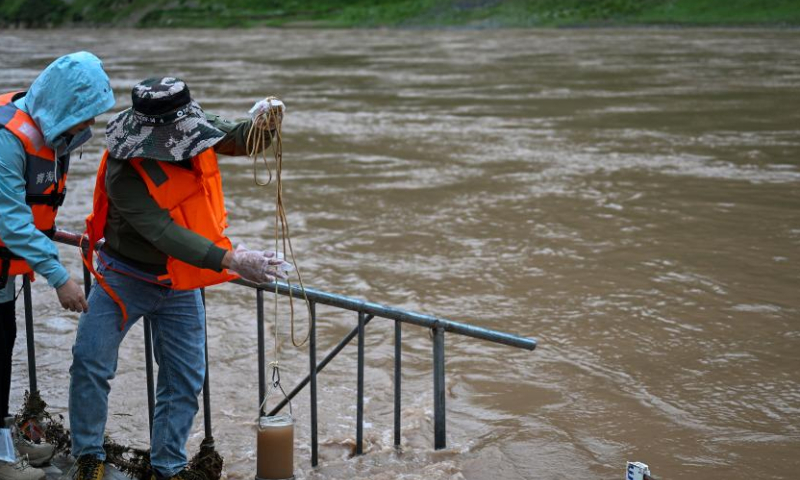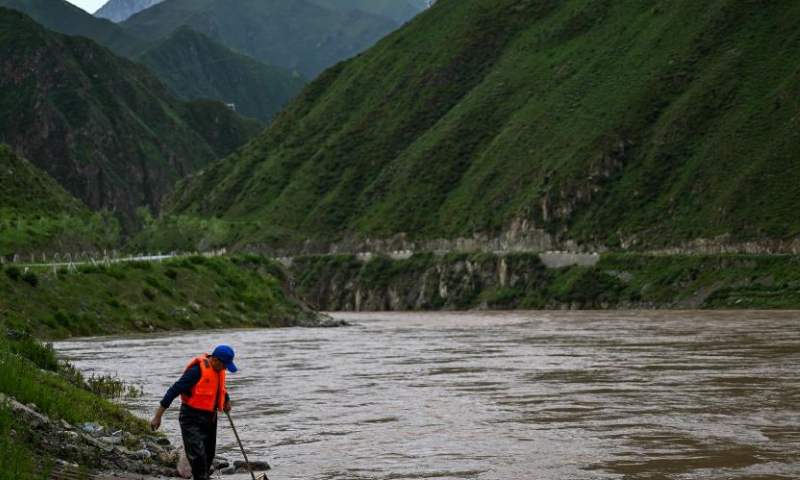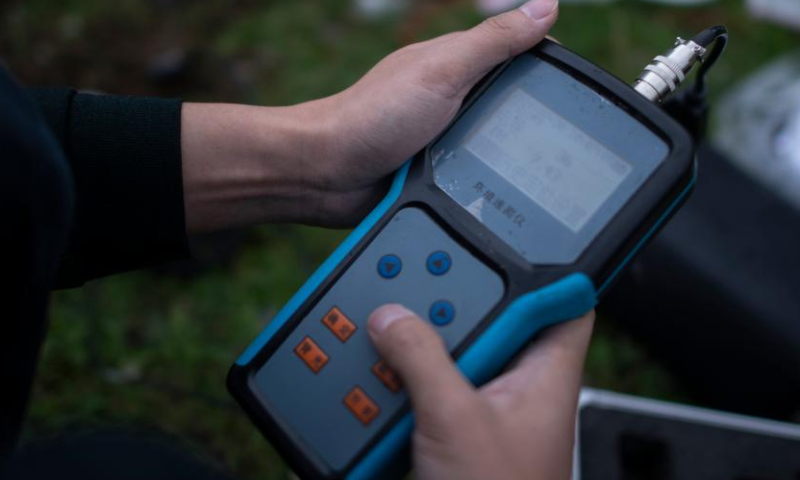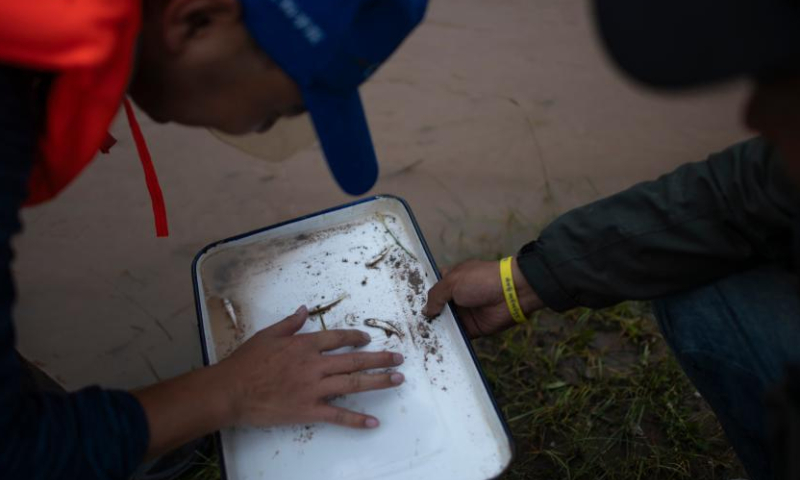Published: Jul 21, 2024

Han Cheng (R), a member of a scientific expedition team of the Changjiang River Scientific Research Institute, collects water sample at Zhimenda hydrologic station in Yushu Tibetan Autonomous Prefecture of northwest China's Qinghai Province, July 20, 2024. Chinese scientists launched an expedition on Saturday in the headwater regions of the Yangtze and Lancang rivers in northwest China's Qinghai Province, to investigate the regions' water resources and ecological environment. The expedition will conduct scientific investigations into the water resources, river hydrology, water ecology, glaciers, soil erosion and permafrost of the regions. (Xinhua/Wu Zhizun)

Qiao Qianglong, a member of a scientific expedition team of the Changjiang River Scientific Research Institute, conducts on-site fish monitoring at Zhimenda hydrologic station in Yushu Tibetan Autonomous Prefecture of northwest China's Qinghai Province, July 20, 2024. Chinese scientists launched an expedition on Saturday in the headwater regions of the Yangtze and Lancang rivers in northwest China's Qinghai Province, to investigate the regions' water resources and ecological environment. The expedition will conduct scientific investigations into the water resources, river hydrology, water ecology, glaciers, soil erosion and permafrost of the regions. (Xinhua/Wu Zhizun)

Liao Maoxin, a member of a scientific expedition team of the Changjiang River Scientific Research Institute, conducts soil multi-parameter detection at Zhimenda hydrologic station in Yushu Tibetan Autonomous Prefecture of northwest China's Qinghai Province, July 20, 2024. Chinese scientists launched an expedition on Saturday in the headwater regions of the Yangtze and Lancang rivers in northwest China's Qinghai Province, to investigate the regions' water resources and ecological environment. The expedition will conduct scientific investigations into the water resources, river hydrology, water ecology, glaciers, soil erosion and permafrost of the regions. (Xinhua/Wu Zhizun)

Qiao Qianglong (L), a member of a scientific expedition team of the Changjiang River Scientific Research Institute, conducts on-site fish monitoring at Zhimenda hydrologic station in Yushu Tibetan Autonomous Prefecture of northwest China's Qinghai Province, July 20, 2024. Chinese scientists launched an expedition on Saturday in the headwater regions of the Yangtze and Lancang rivers in northwest China's Qinghai Province, to investigate the regions' water resources and ecological environment. The expedition will conduct scientific investigations into the water resources, river hydrology, water ecology, glaciers, soil erosion and permafrost of the regions. (Xinhua/Wu Zhizun)
Chinese scientists embarked on an expedition on Saturday to investigate the water resources and ecological environment in the headwater regions of the Yangtze and Lancang rivers.The expedition, comprising around 20 members, will carry out scientific investigations into river hydrology, water ecology, soil erosion, glaciers and permafrost in northwest China's Qinghai Province.
Key research projects include estimating the carbon stock of wetlands, assessing the impacts of permafrost thawing on the plateau, and measuring the thickness of permafrost on glaciers.
The field expedition is jointly organized by the Changjiang River Scientific Research Institute (CRSRI) of the Changjiang Water Resources Commission, along with other organizations. It is set to last 10 days.
It will further the understanding of the current state of the ecological environment in the headwater regions of the two rivers, and will provide basic data for research projects including the protection of the Yangtze River and the construction of Sanjiangyuan National Park, said the CRSRI's chief engineer Xu Ping.
Qinghai is home to the Sanjiangyuan area, which contains the headwaters of China's three major rivers: the Yangtze River, the longest in China; the Yellow River, the second-longest; and the Lancang River, which is known as the Mekong River after it flows out of China.
As important parts of the Qinghai-Xizang Plateau ecosystem, the headwater regions of the Yangtze and Lancang rivers play a crucial role in safeguarding water resources, protecting biodiversity and ensuring ecological stability.
Annual scientific expeditions to the source of the Yangtze River have been conducted since 2012.